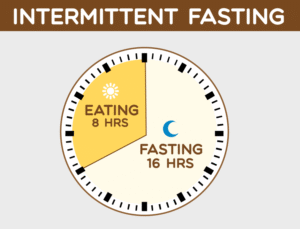Intermittent Fasting: My Journey and Lessons Learned
Intermittent fasting (IF) is a wellness trend that has gained immense popularity, but embarking on this path comes with its own challenges and learnings. Here’s my personal experience with IF, what worked, what didn’t, and the valuable lessons I learned along the way.
Setting the Stage: My Motivation for Fasting
In 2019, I was on a six-month sabbatical, determined to prioritize my health and follow my dream:
- To live a fulfilling, healthy life free from sickness and chronic pain.
- To align my self-care practices with my work and create a meaningful impact.
Here I was, on a six month sabbatical to follow the path of my deepest desire. After many agonising years, I had discovered what really resonated with me and after months of thinking, I had decided to give this dream a real shot. I enrolled in a three and a half year diploma in naturopathy and began studying it while simultaneoulsy practising what I was learning on my own body. We learned about the healing power of the five elements—Space, Air, Fire, Earth, and Water. Among these, Space is considered the highest, and fasting is a key practice to create more space in the body, enhancing its natural healing energy.
My First Attempts at Fasting
Inspired, I decided to experiment with fasting. My initial attempts—24 to 48 hours on lemon water or buttermilk—were challenging. They often ended with binge eating, leaving me disheartened.
On July 1, 2019, I committed to intermittent fasting. I followed a simple routine: eating from 9 AM to 5 PM and fasting for the remaining 14 hours.
The Highs of Intermittent Fasting
The first week was tough. Late-night hunger pangs were intense. But I avoided coffee or tea after 5 PM, sticking to plain water to aid detoxification.
By week two, I noticed significant changes:
- I felt lighter and more energized.
- Chronic hip pain that plagued me for years began to fade.
- I lost 2 kg in the first month.
Encouraged, I made healthier dietary choices:
- Eliminated milk and replaced it with lemon tea (a mix of lemon, jaggery, pink salt, ginger, and hot water).
- Ate a nutrient-rich lunch and more fruits.
- Reduced junk food consumption.
The first month was a success, and I was looking forward to constant improvement from here on!
Then Came the Lows
In the second month, cracks began to show:
Fatigue and Sleep Disturbances: I grew tired more quickly and started skipping evening swims. Sleep became erratic, and I relied on daytime naps.
Intensified Routine at a Vipassana Retreat: A 10-day Vipassana retreat added an 18-hour fasting window (no food post 11:30 AM). Having been on an IF for almost a month, the new 18 hr fasting did not bother me at all. food restrictions didn’t bother me at all. In fact I enjoyed it: Eating a large breakfast and lunch and absolute no snaking. But I returned home feeling exhausted.
Severe Exhaustion: went back to exercising, scheduling a long bike ride with a dear friend. All my muscles ached, but we enjoyed the sweat and exercise. I came back and gorged on some great breakfast. I had a throbbing headache and drank almost two cups of coffee that day (surprising for someone who is not a coffee drinker). The next two days were filled with sheer exhaustion. I had headaches, muscle pain and a strange burning at the bottom of my feet (all signs of nutrient deficiencies). I ate more fruits, drank lots of water, but persisted with my intermittent fasting.
The biker friend was getting increasing worried and asking me to stop. When I told her about losing hunger, she laughingly said it was “like being anorexic “. You starve your body so much that it starts despising even the idea of food. I ignored the comment!
I didn’t stop because I didn’t know how to. I had started on something but hadn’t the faintest idea how to come out of it. I felt like Abhimanyu from the Mahabharata trapped inside a Chakravyuh!
The Wake Up Call
By late August, I visited a naturopathy hospital in Pune for a 15-day treatment. Blood tests revealed severe anemia (Hb: 8.8), vitamin B12, and vitamin D deficiencies. My digestion had slowed significantly.
The doctors adjusted my diet:
Nutrient-Dense Foods: Juices (carrot, pomegranate, sweet lime), sprouts, and ragi/finger millet were added.
Increased Salt Intake: To manage low blood pressure.
Gentle Recovery: Over 10 days, my vitality gradually returned.
What I Learned
After 50 days of intermittent fasting, I lost 3 kg but also depleted my energy and vitality. Here are my key takeaways:
Learn How to Break a Fast: Ending a fast correctly is just as important as starting it. Avoid heavy or processed foods; instead, focus on gentle, nutrient-rich meals.
Plan Your Meals Carefully:Fewer meals mean each one must be nutrient-dense. Include whole grains and millets (like ragi), sprouts, fruits, and vegetables. Can add a little/50 ml buttermilk to the meals if there is acidity or digestion is slower.
Stay Hydrated: In addition to water , drink some seasonal fruit juices, lemon honey water or ash gourd juice during the fasting window. I found drinking 200 ml ash gourd juice (white petha) first thing in the morning, empty stomach helpful. It’s a bland alkaline drink and very simple to make: peel the outside, remove the inner layer of seeds and put into a juicer. If using a blender blend with 50 ml water and sieve through a muslin cloth. Avoid coffee and tea as much as possible.
Monitor Your Health:Women over 30 should do a blood test for anemia, vitamin and mineral deficiencies before starting IF. I would not recommend during this kind of fasting with deficiencies.
Listen to Your Body:Persistent fatigue or discomfort isn’t normal. Adjust your routine immediately if symptoms persist for more than three days.
For you
- If you are a woman and above 30, do get your vitamin and mineral levels tested before embarking on any kind of fasting. I have learned from experience and from others now that women are more likely to experience imbalances.
- Plan for your fast, so you have fruits and veggies at hand.
- If you experience loss of energy for more than 3 days at a stretch (post week 1), then something is not right. Make adjustment accordingly.
- Learn from someone how to come out of the fasting. Trust me, it is even more necessary than going on a fast. Your system is most sensitive post a fast and you need to nurture it back gently. Eating heavy, spicy, or processed foods immediately will damage your gut more than your realise.
More on fasting here.





1 thought on “Intermittent Fasting: My Journey and Lessons Learned”
Pingback: FASTING - Urban Naturopath